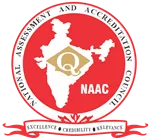- About Us
- Admission
- Academics
- Examination
- IQAC
- Research
- IIC
- Placements
- Student Support
- Anti - Ragging
- Citizenship Training
- Counselling
- Equal Opportunity Centre
- Mentorship
- Mid day Meal Scheme
- Scholarship
- Sexual Harassment (Prevention and Redressal)
- CQAC and SQAC
- Students Welfare
- Capability Enhancement and Development Schemes
- Assessing Learning Levels
- International Desk
- Student Grievance Redressal Committee SGRC
- St. Joseph's Boys Hostel - Apply
- Outreach
- Student Activities
- Infrastructure
- Sports
- Alumni Activities
The teaching-learning process revolves around the need, interest, and capabilities of students whereas the teacher acts as a facilitator. The Institution aims to develop competencies such as critical thinking and problem-solving skills through student-centric teaching-learning methods inside the classroom as well as outside.
Experienital Learning
.webp)
Under the realm of Experiential Learning, students are encouraged to participate in divergent activities. Students visit various industries as part of Industrial Visit programmes in India as well as abroad to get a better insight about organizational functions. Use of Technology as an effective teaching-learning strategy to blend audio- visual content in classroom teaching is used in all classrooms as they all are LCD enabled. As Simulations, students are given an imitation of a situation or process that helps them understand their concepts better. Developing the skill to know the market and flexibility to adjust is the core of all courses. With this purpose, Internships help in building experiences for students. Students are made to choose their internships based on their interests and career prospects.
Industrial Visits
.webp)
Classroom teaching-learning process becomes meaningful and effective only when students get an interface in order to understand the functioning of the industry. SJCC believes learning is effective when supplemented with programmes which focus and also traverse beyond the syllabus and curriculum. Industrial visits are an efficient way of exposing students to the nature of corporate and industrial practices. Industrial visits are organized for all classes in the academic year by their class mentors.
Internships
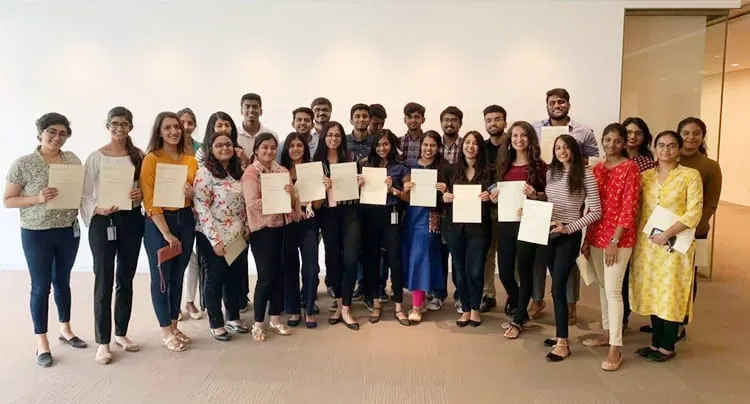
Internship aims at enabling the students to get a practical exposure to the working of the industry by providing an opportunity to supplement their classroom learning with practical experience. Internships are a compulsory part of the Under Graduate and Post Graduate courses at St. Joseph’s College of Commerce as it is believed that it can facilitate the integration of theoretical learning with its application and practice in the workplace.
Outreach Programmes
.webp)
Engagement beyond classroom describes the institutions educational mission: to augment the all-round development of students. The institution has framed various extracurricular activities for students to advance their educational experiences and enhance their social skills. The activities provide a platform for students to involve and interact with other students and communities at large.
Simulations and Role play
.webp)
A classroom simulation is a method of teaching/learning or evaluating learning of curricular content that is based on an actual situation. The simulation, designed to replicate a real-life situation as closely as desired, has students assume roles as they analyze data, make decisions and solve the problems inherent in the situation. A simulation is an instructional strategy (teaching method) that can be used with appropriate learning material at any level from the primary grades through graduate studies.Role Plays help the students to develop their way of thinking and handle practical problematic situations which further strengthens the managerial qualities in them as per requirement. .It can be an integral part of the class and not a 'one-off' event. It is widely agreed that learning takes place when activities are engaging and memorable.
Participative Learning
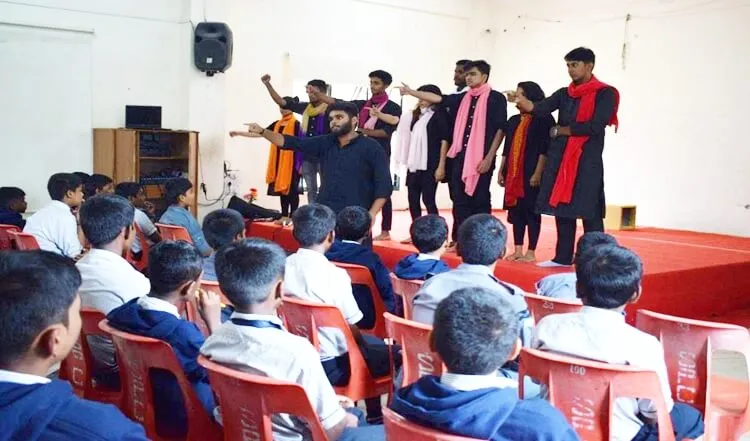
To develop innovative as well as creative skill among students, the institution believes in the concept of participative learning and applying problem-solving methodologies in the teaching pedagogy.
Student Seminars
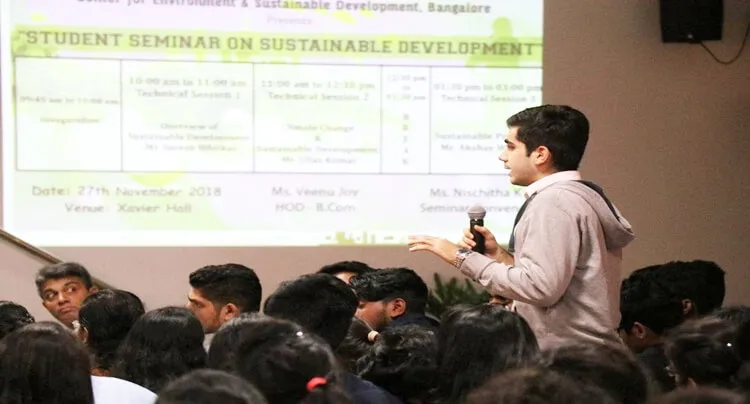
Student seminars are organized by B.Com and BBA departments in which students present papers and discuss ideas.
Group Discussions
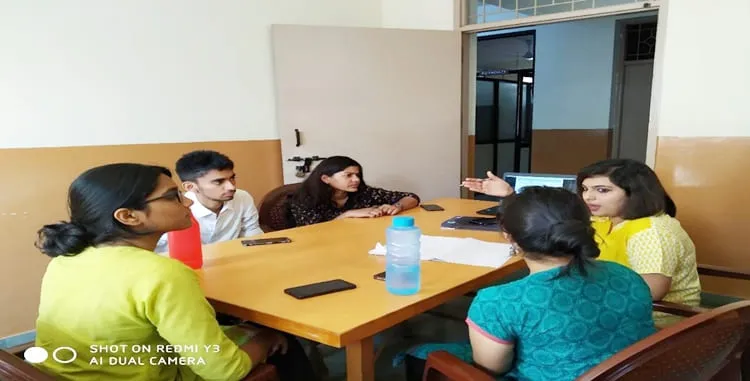
These activities are organized as part of the internal assessment tests in order to encourage learning.
Flipped Classroom
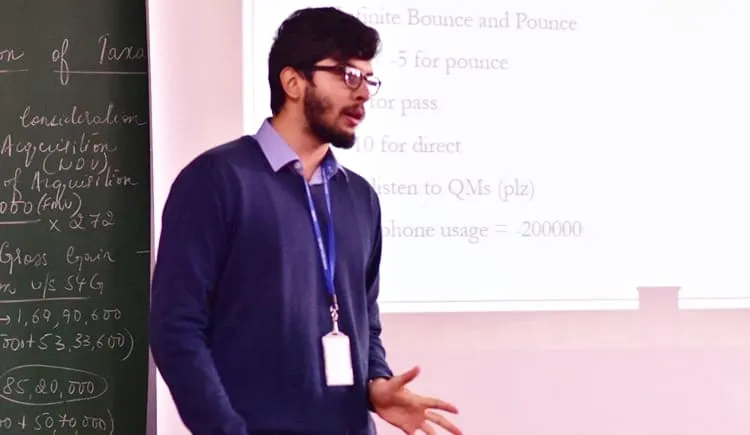
To challenge the students to go beyond what is just required of the course, the flipped classroom method is practiced in classrooms. Flipped learning is a pedagogical approach in which the conventional notion of classroom-based learning is inverted, so that students are introduced to the learning material before class, with classroom time then being used to deepen understanding through discussion with peers and problem-solving activities
Student Clubs and Associations
.webp)
A number of student clubs and association activities aid in student participative learning as the activities are planned and executed by the students under the guidance of faculty members.
Problem Solving Methodologies
.webp)
Problem solving methodologies are an integral part of all courses in all programmes.
Practical courses
Practical courses Along with theoretical explanations, practical knowledge is imparted to the students through practical courses like Tally, Excel, SPSS, SAP which employs hands-on learning methods.
Student Research
.webp)
Students are encouraged to take up research projects in which they need to identify a research problem and apply problem solving techniques learnt in classroom to the problem.
Library Tasks
.webp)
Library based assignments like open text tests, research-based library work for students are practiced.

